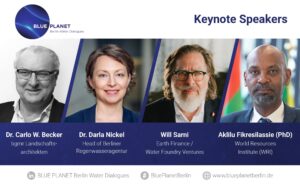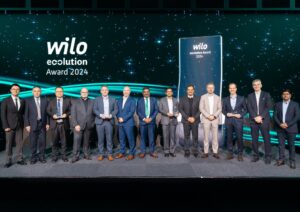Water Management from Siemens Optimizes Flood Control in Northern Germany

The Erftverband in northern Germany uses ingenious and pioneering flood control technology based on the Siemens Water Management System (Siwa) to provide flood protection for the region. (Image source: Siemens)
The organization is also involved in ensuring flood control for residential areas. Heavy rainfall and storms create major problems here. In order to ensure optimal protection from flooding in these circumstances, the Erftverband relies on the intelligent control of retention and buffering capacities in the wastewater network. The technical components are provided by Siemens, who was also responsible for on-site implementation. The intelligent control system has been used to reduce relief discharge in the network, and to improve water quality. The pilot project also provided the basis for equipping other facilities with this cost-effective solution and controlling them in a network. The increasing sealing of land means that sewer networks are quickly overloaded in the event of heavy rain. This does not simply lead to flooding. If the sewer system is unable to manage flow rates, untreated sewage flows into rivers and lakes, damaging the environment. For example, in July 2014 in northern Germany, severe rainfall caused considerable damage. In order to prevent these issues in future and to be better equipped for this type of disaster, the Erftverband has been working for several years in the catchment area of its 35 wastewater treatment facilities to incorporate a pioneering flow control system, the first of its kind in Germany. The control technology used is based on the Siemens Water Management System (Siwa).
Reliable operation
In the course of the project, ten rain basins along the main sewer system with a total of about 40,000 cubic meters of retention capacity were first integrated in a combined simulation model and control tool using the Siwa Sewer network control system. This smart control system calculates optimum control strategies and enables simulation of sewer conditions during operation. For flow control, the sewer network inflow is calculated every 15 minutes using online radar data and radar forecasts from the German Weather Service. This data is sent automatically to Siwa Sewer via standardized interfaces. The system calculates and adjusts the relevant control parameters in very short intervals and transmits them to the control system for the pumps and flow regulators. A fallback strategy with six levels of failure and associated measures ensures a high level of availability for the overall solution, which has been running error-free since March 2016.
Water flows under control
The intelligent sewer control system has helped to improve plant operation considerably thanks to the reduced drainage times for the basins outside the treatment facility. But most importantly, there have been more than 50 recorded severe rainfall events with relief discharge in one or more basins since the new solution went live. With the control system, the relief discharge amount has been reduced by up to 85 percent per single event, while at the same time particularly sensitive bodies of water have been protected by directing the relief discharge. This success has enabled the Erftverband to add two more rain overflow basins to the control network, which means that since 2017 the system has comprised a total of twelve basins and a retention capacity of 45,000 cubic meters.
Source: Siemens Aktiengesellschaft







